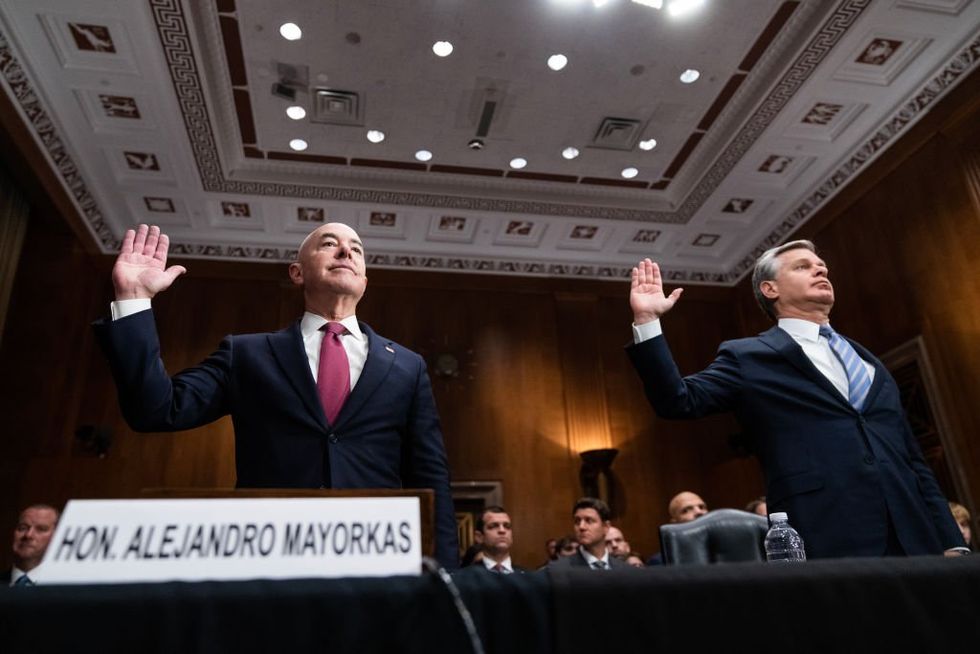Returning To The Faith: Tradition As The Way Forward
Adapted from “The Michael Knowles Show,” August 26, 2024. Starts: 29:04 The Free Press published an excellent article over the weekend by my friend Maddy Kearns, who has been on my show a number of times. I saw it at the top of the Drudge Report; it’s gone absolutely viral. Kearns’ piece is about women ...

Adapted from “The Michael Knowles Show,” August 26, 2024.
Starts: 29:04
The Free Press published an excellent article over the weekend by my friend Maddy Kearns, who has been on my show a number of times. I saw it at the top of the Drudge Report; it’s gone absolutely viral. Kearns’ piece is about women wearing veils at church — quite a niche issue. So why on earth would this make it to the top of the Drudge Report? Why would it go viral? Because it speaks to something really profound that is happening in religion and in politics.
The article, “The Young Catholic Women Bringing Back Veils: A new generation of worshippers is longing for a ‘lost type of Catholicism’,” explores why young Catholic women have begun wearing veils in church in recent years. While Catholics are not the only ones who wear veils or cover their heads at church, we are most often the ones thought of first. Veil wearing comes from 1 Corinthians, chapter 11, verse 4: “Every man who prays or prophesies with his head covered dishonors his head. But every woman who prays or prophesies with her head uncovered dishonors her head—it is the same as having her head shaved.” More broadly, the first letter to the Corinthians is about the relation of man to woman and man to God, and it explains how we can symbolize this in our lives.
But in the 1960s, a radical shift occurred inside the Catholic Church, outside the Catholic Church, and in secular society that it would be a good idea to sever our connection to the past. This shift was not solely supported by the hippies in drum circles with flowers in their hair. This happened in every institution throughout the West. Even in the most enduring and ancient institution in the world, the Catholic Church, a major liturgical reform took place. They upended the mass of the ages and the way the mass had been celebrated for at least 1,400 years — and really even earlier than that. They just kind of upended the past, which involved some radical changes, including encouraging women to stop wearing veils.
Now people are realizing that there is usually a reason that things that endure for millennia endure. Maybe when a tradition persists for many centuries or millennia, there is a reason. Maybe we do not have a sufficient stock of reason that we can just reinvent the world anew so that it will be much better, as though that would be an advisable thing to do. Maybe those older generations knew something that we do not; maybe we are not that perfectly intelligent. Maybe we are not even as intelligent as our grandparents were. And maybe we need to return to tradition. Maybe that would benefit us.
Maybe that is actually the way forward. It is not the way back. It is not regression because tradition is not some dusty old thing. There are plenty of dusty old things that have popped up in history that eventually fell away because they just did not have staying power. That is not what tradition is. In fact, that is what fads are. That is what radical innovation is. All those dusty old things that have been left in the dustbin of history all the way in the past? Those were fads; those were fashions. They were some supposedly genius ideas from some radical who wanted to upend everything — and then they didn’t work.
WATCH: The Michael Knowles Show
Tradition is not the oldest thing. Tradition is, in some ways, the newest thing, or at least we would say the most enduring. It is what links the past and the present and the future. Maybe there is a reason that Christians have acted as they have acted, believed as they have believed, and lived as they have lived for millennia. Maybe there is a connection.
The Latin phrase lex orandi lex credendi means the way we worship influences the way we believe. Religion is not just a thing you do in your head and you ignore that you have a body in time and space. Religion is a thing that you do. You worship God. There is a difference between praying on your knees, praying sitting down, or praying while you’re driving. There’s a difference between saying a prayer you just invented yesterday or saying the Lord’s Prayer. Our Lord tells us in the Gospels how to pray: “Our father, Who art in heaven, Hallowed be Thy Name. Thy Kingdom come, Thy Will be done, On earth as it is in Heaven. Give us this day, our daily bread, And forgive us our trespasses, as we forgive those who trespass against us. And lead us not into temptation, but deliver us from evil.” He tells you how to do it.
Then, going all the way back to the Apostolic Age, the Church in her wisdom established ways in which we can pray. And that’s going to affect the way we believe. If you receive the Eucharist on the tongue kneeling, you’re going to believe something about what the Eucharist, the Holy Communion, is. If you are just driving in your car and you stick your hand out like you’re going through the McDonald’s drive thru, that is also going to affect the way that you believe because we’re incarnate creatures and that’s going to affect the way that you live too.
Maybe these young women who want to return to wearing veils realize something has been lost. Maybe they realize that all the innovation that was supposed to free us and make everything better has actually made things worse. Maybe the real update we need right now is to return to the faith as it was practiced for nearly two thousand years.
Originally Published at Daily Wire, World Net Daily, or The Blaze
What's Your Reaction?
































































































